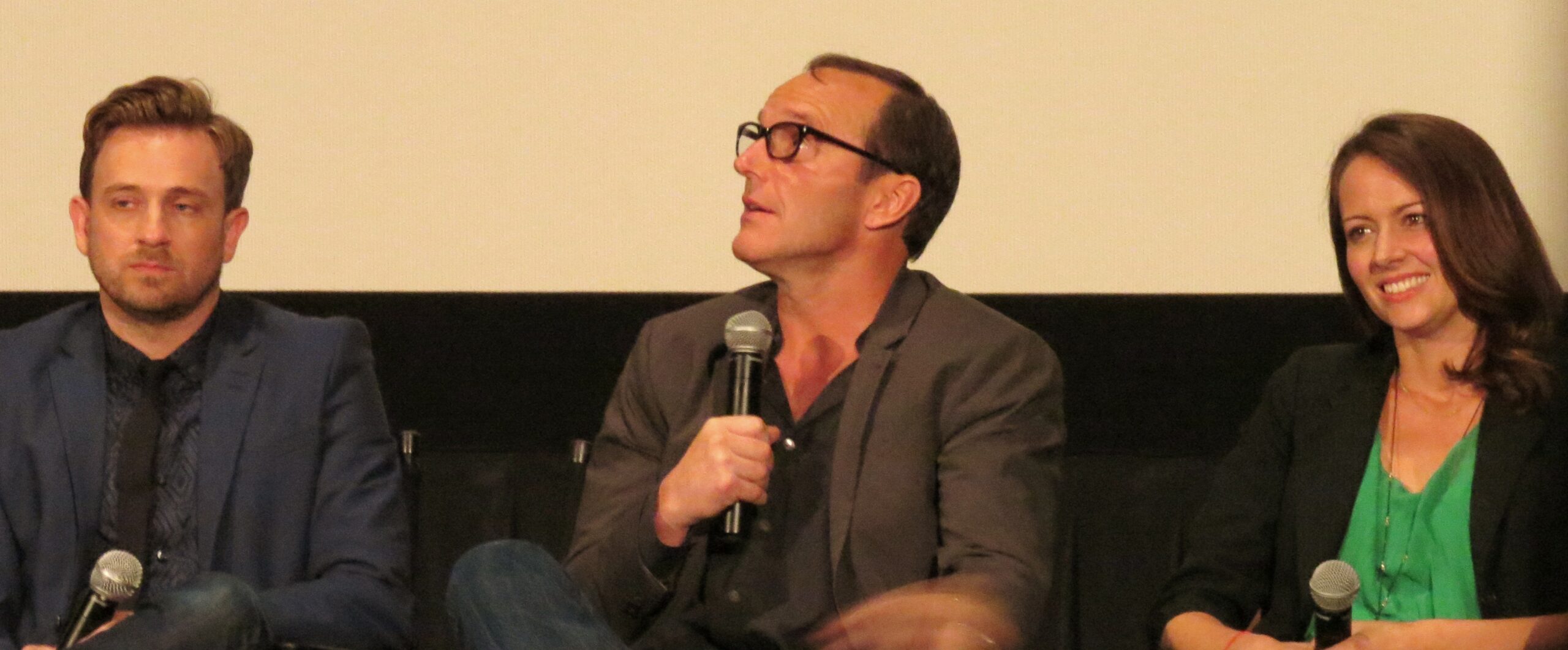If you follow Joss Whedon’s work, you’ve probably heard of his latest project – tackling the immortal words of the Bard himself. Shot in twelve days in his home while on a break from the “Avengers,” the next film to join the wonderful world of Whedon is his take on Shakespeare’s famous comedy “Much Ado About Nothing.” It stars many familiar faces from his previous projects and is currently playing in cinemas across the country. I was fortunate enough to be at a screening followed by an actor and director Q&A session, attended by Whedon himself, as well as Clark Gregg, Tom Lenk, Amy Acker (mistakenly introduced as Amy Adams), and Alexis Denisof.
For those unfamiliar with the comedy, it is one of Shakespeare’s best, telling the tale of a witty war between lovers, rife with trickery and scandal. (The word “noting,” pronounced as “nothing”, actually means gossip). Joss Whedon chose to stay true the original words for this film, an absolute relief to actor Tom Lenk who was glad the actors, “[didn’t] have to flip through the script wondering if [their] character dies on the next page.” (Clark Gregg, known for his role as the recently resurrected Agent Phil Coulson of the Avengers franchise, snappily replied, “Well, I’ve certainly never had that problem.”)
This movie is a real treat for people familiar with Joss Whedon’s other works, as its cast is filled with actors who for the most part have all worked with Whedon on prior projects. Amy Acker, known for her work in Whedon’s “Angel”, stars as Beatrice, the bitter niece of Gregg’s Leonato, governor of Messina. Opposite Acker is Alexis Denisof, playing the wickedly witty Benedick. Denisof last worked with Whedon in “The Avengers.” Reed Diamond of “Dollhouse” plays Don Pedro, while “Serenity” actor Sean Maher plays his conniving bastard brother Don John, and Nathan Fillion of “Firefly” rounds off the main cast as the bumbling Dogberry, sheriff of Messina and chief of malapropisms.
The film is brilliantly done and well-paced. Filmed in black and white, “Much Ado” has a sort of film-noir feel to it, adding to the charm and atmosphere of the story, which involves parties and deception and betrayal. The lines are delivered with wit, and are easily understood even by a Shakespearean English novice, making for better, more satisfying laughs. This is a comedy, after all!
The play itself is mainly written in prose rather than iambic pentameter (a particular rhythm characterized by five sets of unstressed then stressed syllables- But soft, what light through yonder window breaks), making it much easier for the actors to deliver lines conversationally. This helps the dialogue to flow smoothly and keep the audience enthralled rather than distracted by rhyming couplets and carefully calculated syllables of English that are already confusing enough as it is.
This film is a must-see for any literature lover, Whedonite, or filmgoer who is looking for something delightfully different and satisfying this summer. The story of “Much Ado” has endured ages, and this adaptation is a testament to its greatness as well has Whedon’s own skill as a director. Whether you’re a veteran of Whedon’s world or just starting on what will be a beautiful, heart wrenching affair with his other directed works, I highly recommend you see this film before it leaves theatres, because this is definitely something you do not want to miss.




